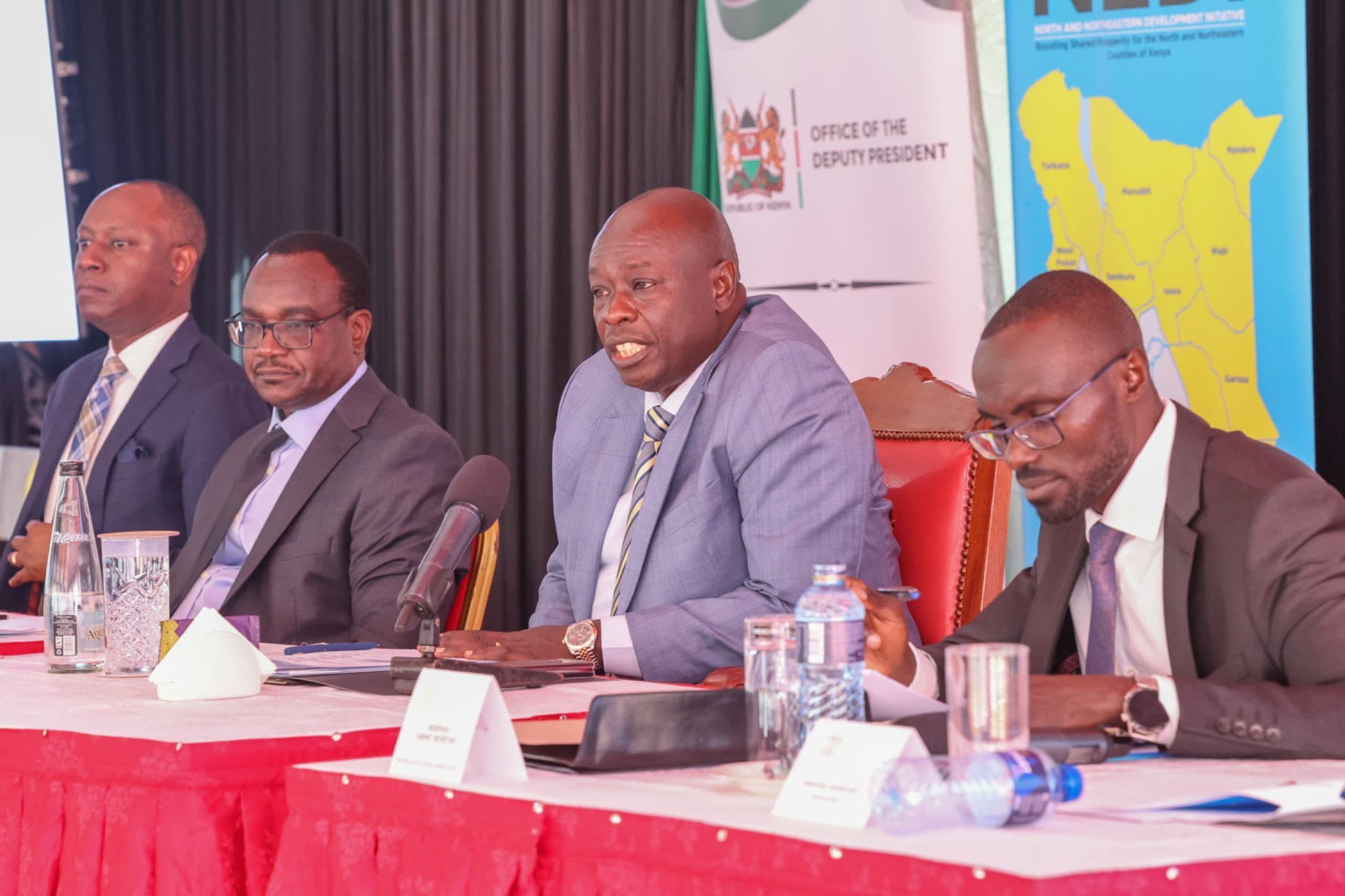Deputy President Rigathi Gachagua has reaffirmed the government’s commitment to fast-tracking development in Northern and North-Eastern Kenya through targeted projects worth billions of shillings, implemented in partnership with international donors.
Speaking during a recent event, the Deputy President highlighted that the North and North Eastern Development Initiative (NEDI), valued at Kh 300 billion, aims to catalyze the socio-economic transformation of the vast region.
The initiative is being implemented with support from the World Bank and other development partners.
“The opening up of Northern and North-Eastern Kenya is a priority for our administration because the area has lagged for a long time. We are grateful to our partners, particularly the World Bank, for their capital injection to unlock the potential of this region,” said Gachagua.
Counties benefiting from the NEDI programme include West Pokot, Turkana, Samburu, Isiolo, Marsabit, Tana River, Lamu, Garissa, Wajir, and Mandera.
The Deputy President underscored that the high-impact projects span critical sectors such as Transport, Agriculture, Water, Health, Education, and Energy, all aimed at stimulating and sustaining socio-economic transformation in these counties.
Key NEDI projects include the Horn of Africa Gateway Project (HoAGP), a 740 km road connecting Isiolo, Wajir, and Mandera, which is set to commence soon.
Other projects include the Isiolo Export Abattoir, the rehabilitation of the Wajir Livestock Training Institute, and the Horn of Africa Ground Water for Resilience Project (HoAGWRP), which plans to construct 400 boreholes to benefit residents in the region.
Gachagua noted the untapped potential of the region, stating that if properly developed, Northern and North-Eastern Kenya could play a significant role in securing the nation’s food supply.
“Countries in the Middle East with similar climatic conditions have been transformed into hubs of food production. We look forward to the day when Northern and North-Eastern Kenya will contribute to our country’s food security. Expanding road infrastructure, water access, energy, and education is a critical step in that direction,” he said.
With the region particularly vulnerable to the effects of climate change, the Deputy President stressed that NEDI projects include resilience measures to help the region adapt.
“As we confront the challenges posed by climate change, we are ensuring that resilient measures are in place so that we don’t have to deal with the same issues year after year,” added Gachagua.
To ensure the successful implementation of these projects, the Deputy President emphasized the need for full involvement of local leaders, noting that their input is critical in ensuring the initiatives benefit their communities.
“We will fully inform and involve elected leaders from the region. Their participation is crucial, and we will establish a feedback mechanism through which they can share progress and insights,” said the DP.
He also urged leaders to take an active interest in these development initiatives, underscoring the importance of their contribution to ensure the projects are beneficial and impactful for the people.





